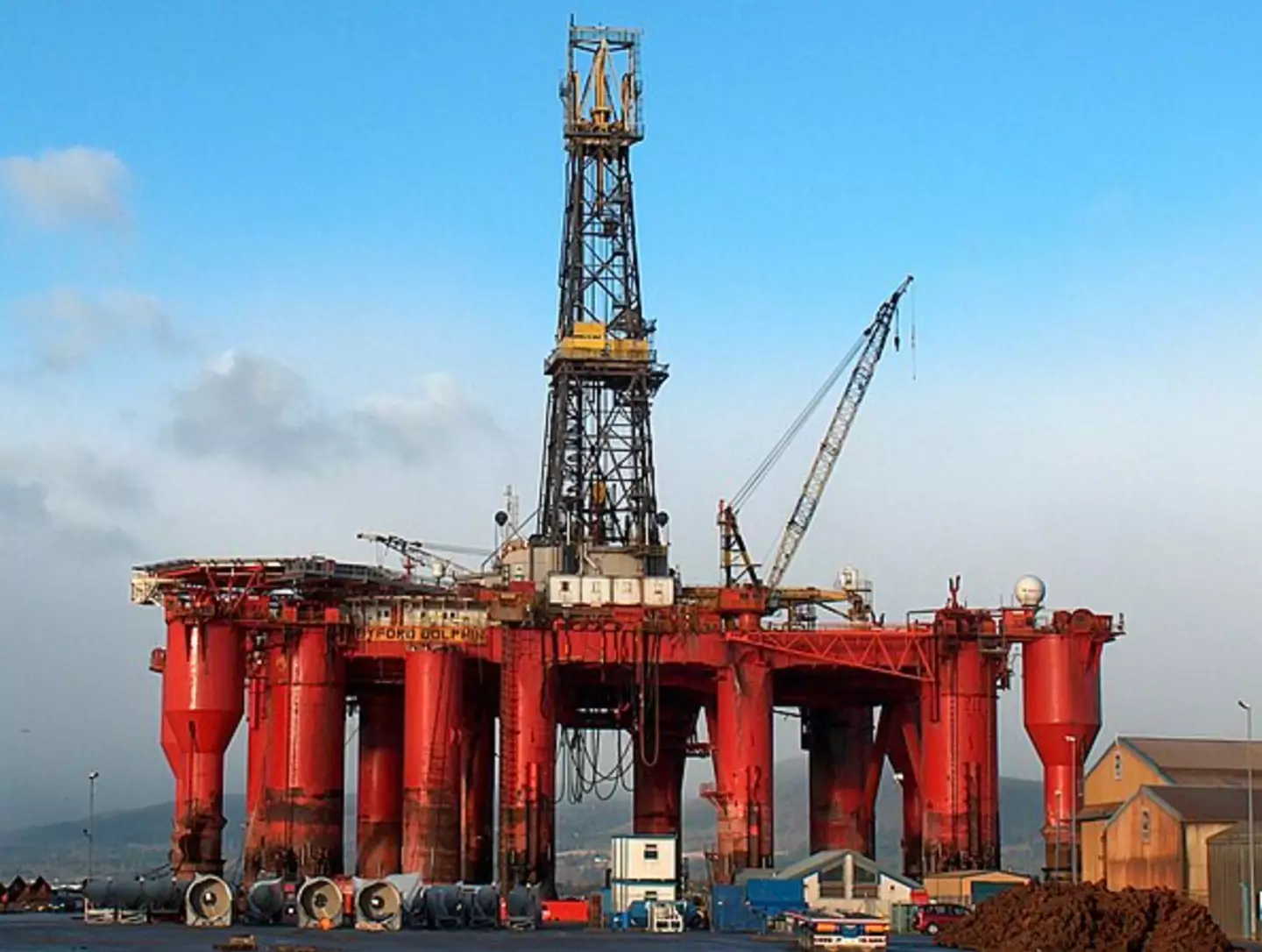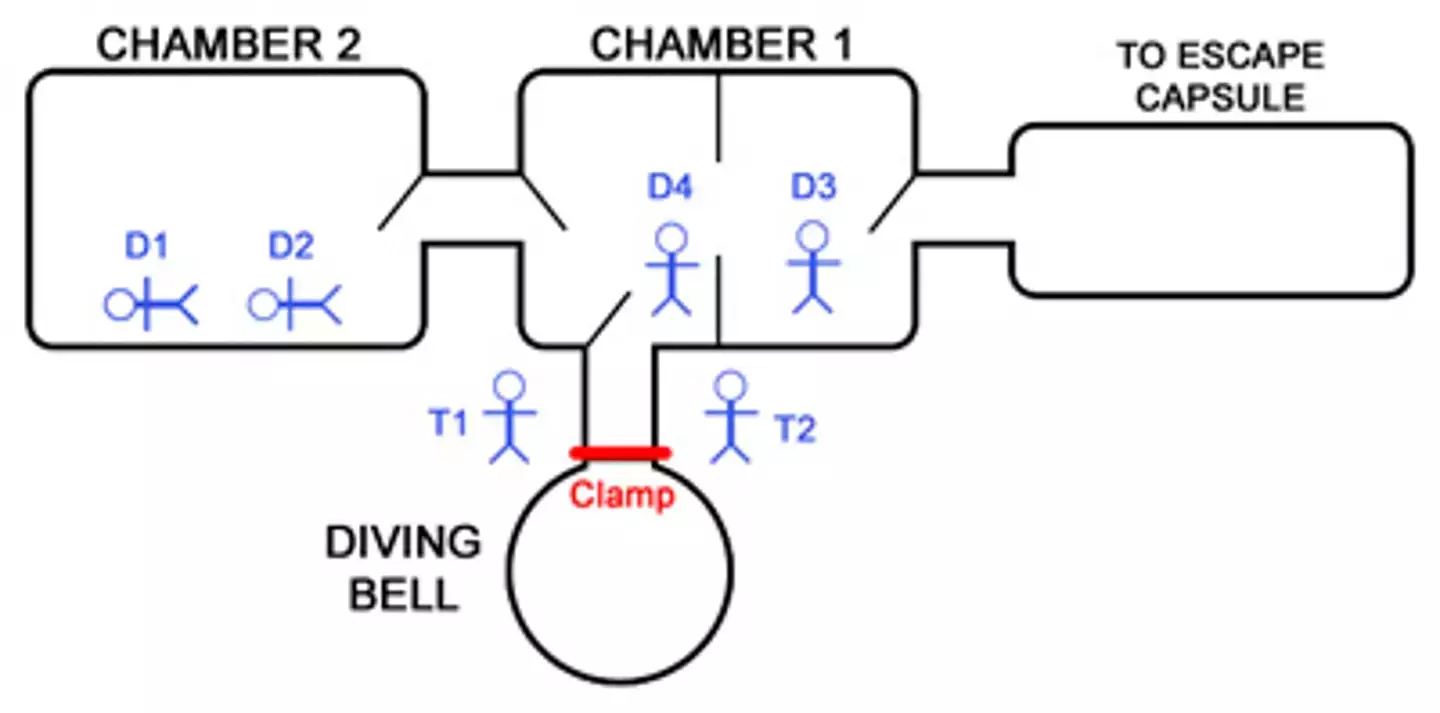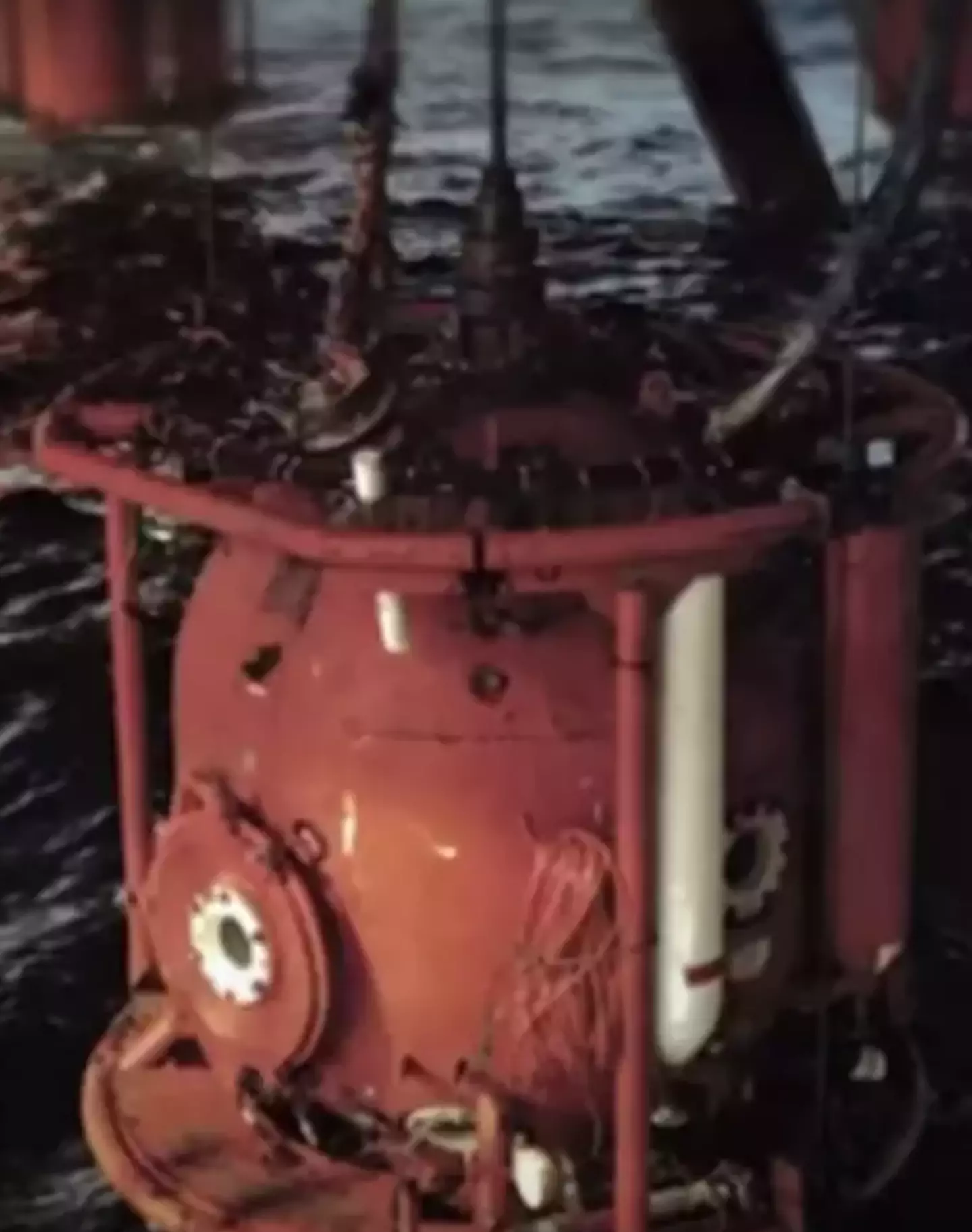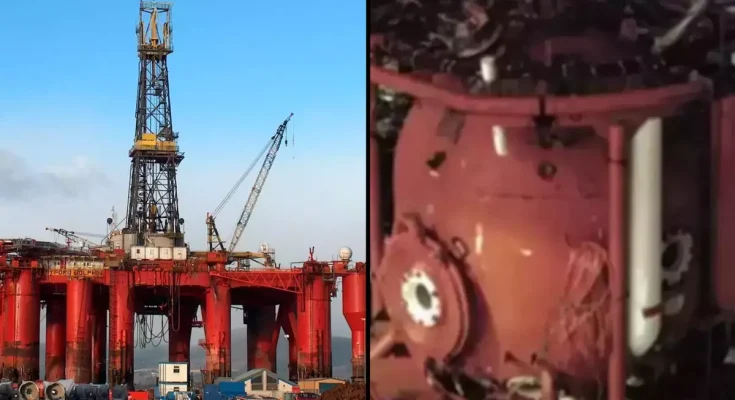It took them 26 years to be given a compensation for the gruesome death of their father
The family of a victim that suffered one of the most horrifying deaths ever in the Byford Dolphin tragedy was successful in their fight for justice.
Northumberland diver Roy Lucas was just 38 when he died in a diving bell accident off the coast of Norway in November 1983, along with four other divers at the infamous Byford Dolphin rig.
Families of the deceased were first told that the blast was an accident that happened after air escaped from the diving bell due to the gauges being tampered with.
But this was far from the truth.

The disaster took place in 1983 (Wikimedia Commons)
The North Sea Divers Alliance (NSDA) found a report that suggested that it was faulty equipment that caused the five workers to be killed.
The divers worked 1,000 feet (305m) below the surface, and carried out construction and maintenance work on the oil rig.
They needed to breathe in special pressurised air that dissolves nitrogen in the divers’ blood.
This is because diving this deep can create issues when resurfacing, as coming to the surface too quickly can cause nitrogen to form bubbles in the body.
All the divers lived in a pressurised facilities, with their living quarters separate to ‘the diving bell’, which could only be released if the doors were fully closed.
But for some reason, it was released too soon, with the air in the living quarters shooting from nine atmospheres to one, the normal surface air pressure, in the blink of an eye.
A ‘tender’ named William Crammond, was hit by the dive bell and killed, though the other tender, Martin Saunders, survived but was in critical condition.

The layout of the chamber (Wikimedia Commons)
Divers Edwin Coward, Roy Lucas, Bjørn Bergersen were worse off, as nitrogen in their blood turned into bubbles, boiling them from the inside.
A fourth driver Truls Hellevik had his body forced through a 60cm hole due to the change in pressure, ‘fragmenting’ his body, as his organs flew around the pod, while remains were found metres away.
They may well be some of the most gruesome deaths ever recorded in human history.
However, the son of British diver Roy Lucas, Stephen, was finally awarded a six-figure sum in compensation from the Norwegian Government after a two-year battle for justice in 2009, 26 years after the tragedy.
The sum was also matched and paid to each of his two sisters, as the 36-year-old criticised the government for their handling of the tragedy.
He stated: “We’ve never even received an apology and that’s disgusting. It was December that we were told we did not meet the criteria for compensation.
“It was then that my sister contacted a solicitor and when push came to shove the Norwegian government decided to review the case.
“We ended up receiving a majority vote and now we are being granted the compensation. But it doesn’t matter because no amount of money will be enough.”

It would ordinarily take days for divers to adjust to the drastic change in atmosphere (Josef Pavlik)
Their father sadly died just one month before he was to see his son, 10 and two daughters Heidi, 14 and Clare, eight, at the time – for the first time since he had separated from his wife Frances eight years prior.
Stephen had to take care of his mother after his father’s death after she developed MS and later died aged 37.
“It’s been a very long fight – it’s around two years ago that the new information came to light. I’m pleased it’s all over but there’s still a lot to fight for. My sister is still dealing with the Government to try to get the back-dated child pension that we were due,” he explained.
A legal loophole stated that because Roy was a British citizen and not registered in the Norwegian national insurance scheme, he would not be entitled to compensation.
NDSA spokesman Tom Wingen said this legal stance was ‘ridiculous’, adding: “You can’t really call this a success – this family are getting part of what they were due many years ago.
“This family have had an incredibly tough life. If they had received the compensation or the benefits that they were legally entitled to at the time of their father’s death, their childhood would have been substantially improved.”
He concluded: “I don’t consider this a victory because it’s a very sad state of affairs that it has taken this long.”
Featured Image Credit: Wikimedia Commons / Josef Pavlik



